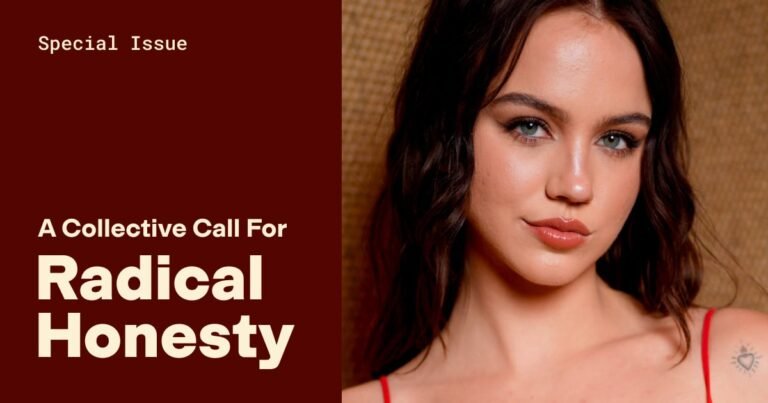Emma Brooks is a model and influencer, and in PS’s Radical Honesty issue she talks about finding the right medication for her mental condition. Read more Radical Honesty stories here.
My journey started when I was 12 because that’s when I was first diagnosed with anxiety and depression, but then I started taking medication along with therapy when I was 14. It’s been an interesting journey. I feel like I’ve come a long way. There’s been a lot of trial and error, a lot of learning, and a lot of the greatest joys and the absolute worst sadness.
I don’t allow it to control or rule my life, I just allow it to be a part of me.
I was diagnosed with bipolar disorder when I was 18 years old. My therapist told me that I have bipolar-like tendencies, but this is a very complicated diagnosis that can be misdiagnosed. My therapist wanted to make sure that it was bipolar disorder that we were considering, because bipolar disorder and bipolar depression are treated completely differently. Even now, there is a synergistic effect with medication. Currently I only take mood stabilizers, because antidepressants can counteract the effects of mood stabilizers. This is a very complicated issue. You have to understand yourself well. I am very careful because sometimes I feel like I am out of my body and I worry that I don’t trust myself enough. You never know if your first instinct is you or if it’s the right or wrong decision, but I deal with it very well.
But it’s a process. I felt the worst I’ve ever felt, I was hospitalized twice. That was probably my lowest point. And I struggled with addiction. Those parts of my life helped create the person I am now, the person who is really in control of my mental state. I don’t allow it to dictate my life or control me. I let it be a part of me. In the last 10 years I’ve learned a lot about myself, and in the last four years I’ve really learned that I have bipolar disorder.
Everything that’s said about coping skills and support systems is so true. It really works. The last few years have been the best mental health I’ve had in probably my 22 years of life. I’ve been in therapy and I’ve been on a proper medical schedule. But even last year, I tried not taking medication, what really helped me was my support system. I have amazing people in my life that support me. And I’ve just been relying on knowing that deep down I’m a good person. I know that and the people around me know that. I feel really blessed in that regard, because I know that it’s really hard to find a good support system.
I don’t want to hide it because I think mental health needs to be more normalized and destigmatized.
I started talking about mental health at a young age. That’s when I had my first trip to hospital, which was of course a really tough experience. I guess I didn’t realise how common it was at the time, but then I realised there were a lot of young people and people who were hospitalised and had these experiences and were in really tough situations. I’m a pretty open person in general. I don’t feel the need to hide it, and I don’t want to hide it, because I think mental health needs to be more normalised and destigmatised.
It’s very vulnerable to share my experiences and sometimes I feel anxious after the fact, but I try to tell myself that this is a lot more common than people talk about, and it’s good because it allows us to empathize with each other and know that on the inside we’re all coming from the same place, but everyone has different ways of dealing with and managing their emotions.
I think when I was younger, if there were more resources, I would have reached out to others for help, because even now there are more online resources and programs and other ways to reach out for help, and I’m so glad. I felt so alone, and this feeling of loneliness is a driving force that people and kids have to deal with, and it leads them down a worse path.
Whenever I feel like I can empathize with someone, I feel like it’s easier to deal with those emotions if I have someone to carry it with me. What I can offer people is someone they can turn to, someone they can empathize with.
— As asked by Lena Felton
Lena Felton is POPSUGAR’s Senior Director of Features and Special Content, where she oversees feature stories, special projects and identity content. Previously, she was an editor at The Washington Post, where she led the team covering gender and identity issues.


